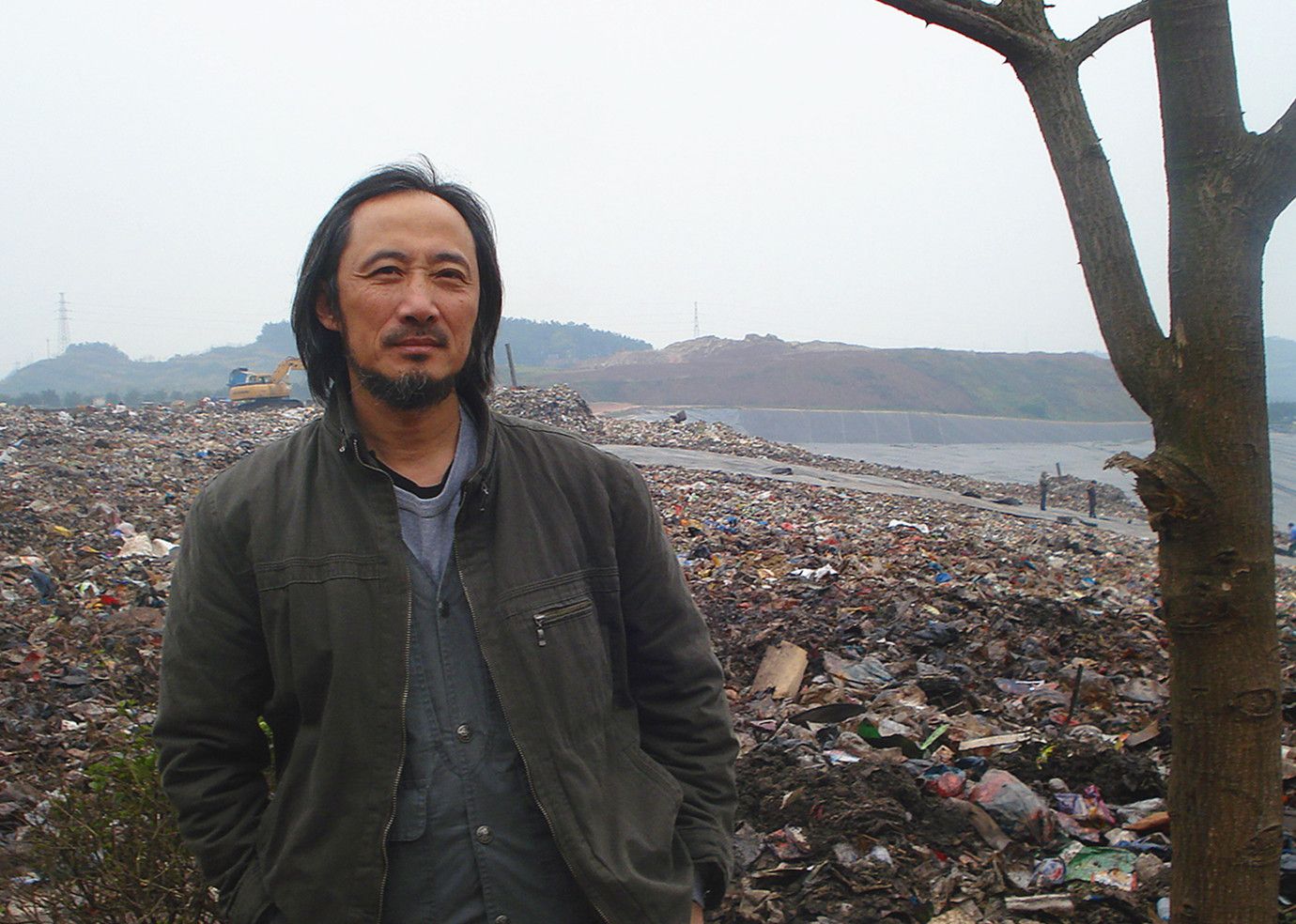China (PRC) / Great Britain, Literature, 2017
Ma
Jian

China was the guest of honor at the Frankfurt Book Fair in 2009. The real star, however, was a writer not allowed to be there according to the official program. We are talking about Ma Jian, who was long before declared a persona non grata in China. If we go back to 1982, Ma – who was 29 years old at the time – worked as a photographer in Beijing and was friends with painters and poets who wore jeans and had long hair.
For that reason, they were all subjected to suspicion – like many others at the time – by the “Public security bureau,” and victims of a campaign accusing them of “mental pollution.” At that time, 2,000 people were sentenced to death. Ma – who was by then considered a stranger in his own country – sought to break free of these intellectual fetters and began to travel through China in 1984. He was on the road for three years, searching for the soul of his nation as well as his own: Starting from Beijing, he travelled through vast expanses to the steppes in the west, and from sacred mountains with primordial forests and canyons, from ghost towns dotting along what used to be the Silk Road, and to the dynamic crowded cites on the south coast. His constant companions: Walt Whitman’s classic book “Leaves of Grass,” along with a feeling of loneliness and being adrift. Years later, Ma wrote about this period in his prize-winning, legendary travelogue “Red Dust” (2009), which was published in Chinese in 2001. Here he mixes fact with fiction: Over the course of the book, the adventures that Ma undertakes in his attempt to compensate for being lost become more and more wild, though the author is never entirely able to escape his sense of loneliness. Until Ma realizes what he needs: the city and its inhabitants, women and books. That’s why he went into exile in 1986, right after the end of this trip; he headed first to Hong Kong, then Germany, and finally on to England, where he has lived since 1999. None of his books can be published in his homeland China. Ma, considered an “enfant terrible” by many Chinese, pushes the envelope when it comes to strict taboos. One is the massacre at Tiananmen Square, which took place in Beijing on June 4, 1989. At that time, thousands of students called for more political freedom at peaceful demonstration – and were shot by special forces of the Chinese military, who rolled over them with tanks. The massacre is still shrouded in silence in the country’s history, as if the entire country were suffering from amnesia. Ma’s novel “Beijing Coma” (2009) tries to shake his country out of this collective amnesia: The 1,000-page book features a twenty-two-year-old first-person narrator named Dai Wei, who is one of the students and son of a rightist. Struck by a bullet, he goes into a coma – and wakes up ten years later. Unable to speak during those ten years, he is able to hear, and to remember. He thus chronicles those days and weeks that changed China forever. With a level of detail that borders on the torturous and in a mimetic adaptation of the bureaucratic idiom of the Communist Party, Ma portrays not only the bloody end, but also the internal discussions that led up to it and the power struggles that played out between the cadres. “Beijing Coma” is at the same time more than just a close-up view of the historical events of 1989: While in a coma, the first-person narrator recalls key moments of his childhood during the traumatic Cultural Revolution, over the course of which his father returns from a re-education camp as a broken man. He also observes the upheaval of the present: Once he himself a victim of politics, his mother, now victim of the inhumane order of neoliberal markets, is forced to leave her apartment. Ma weaves an artistic tapestry uniting different levels and times in order to offer a critical review of the history of modern China. His novel “The Dark Road” (2015) also presents a deeply negative view of his country. In the words of literary critic Gregor Dotzauer, in Ma’s book China seems more like a “regime of unending darkness that doesn’t seem to have progressed beyond the bloodthirsty era of the Cultural Revolution.” It is as though “the book is attempting to come to terms with the heavy-handed one-child policy, which was introduced in 1979 and recently diluted, by piling on unhappiness”. What is the book about? It covers issues like forced abortions, fetuses consumed as a delicacy to increase fertility, blood and dirt, toxic waters and the horror of a country that sells its soul and its people for the dream of a rising nation. In the book, three people flee along the Yangtze River in order to escape the state – in vain. Beginning with horrific scenes, the novel is conventional with its linear structure and yet hits the reader like a ton of bricks with its use of quotidian details. By the end of “The Dark Road,” Ma shifts from realism to magical realism: Images become ever more opulent, while the dream of a rising China is revealed to be a nightmare in which the circle of life is downgraded to a circle that creates trash from commercial goods, and commercial goods from trash. Ma’s novels are dark parables, but with a vibrant, human core that remains unblemished amid radical criticism. The careful reader will be struck by the author’s intense love for the common people, for the ordinary Chinese.
Text: Claudia Kramatschek
Translation: Amy Pradell
Peking Koma. Roman. Translation: Susanne Höbel. Rowohlt Verlag. Reinbek 2009.
Red Dust. Drei Jahre unterwegs durch China. Translation: Barbara Heller. SchirmerGraf Verlag. Munich 2009.
Die dunkle Straße. Roman. Translation: Susanne Höbel. Rowohlt Verlag. Reinbek 2015.

